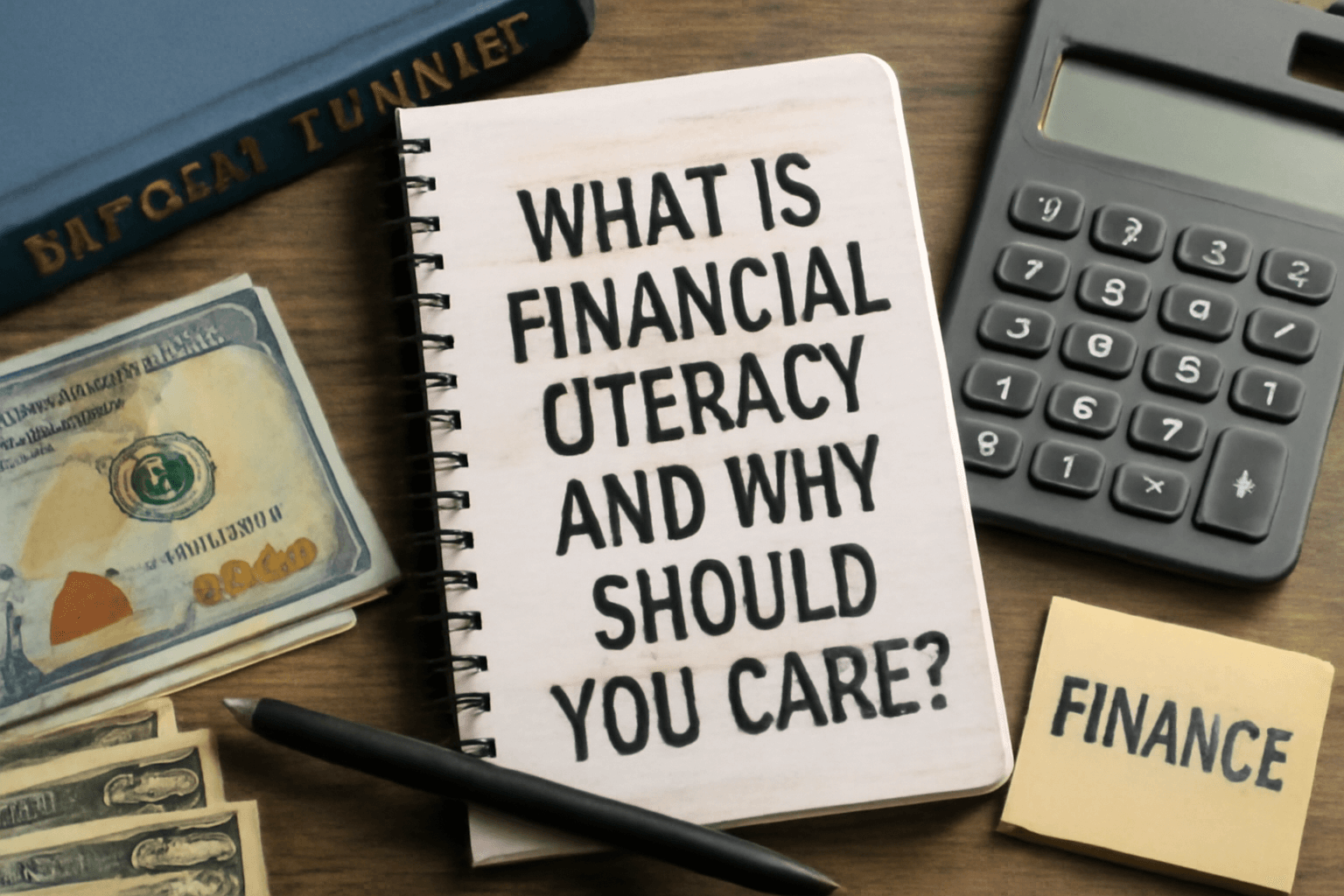In today’s world, managing your money is just as important as earning it. Yet, many people leave school without learning how to budget, save, or invest. That’s where financial literacy comes in. But what does it really mean and why is it essential for your everyday life?
Whether you’re just starting your financial journey or trying to make better money decisions, understanding financial literacy is a foundational step to building a secure future.
What Is Financial Literacy?
At its core, financial literacy is the ability to understand and use various financial skills effectively. This includes budgeting, saving, investing, understanding debt, and knowing how money works in general.
Being financially literate means having the knowledge and confidence to make smart decisions with your money, both in the short term and long term.
Key Components of Financial Literacy
- Budgeting: Knowing how to plan and manage your income and expenses
- Saving: Setting aside money for future needs or emergencies
- Investing: Growing your money through various financial tools
- Debt Management: Understanding credit, loans, interest rates, and repayment
- Financial Planning: Setting financial goals and creating a strategy to reach them
Why Is Financial Literacy Important?
Financial literacy empowers people to:
1. Make Informed Decisions
When you understand financial concepts, you’re less likely to be tricked by misleading deals or fall for scams. You’ll know how to read the fine print on a loan, understand fees, and evaluate risks.
2. Avoid Debt Traps
Many fall into the cycle of using credit cards or loans without fully understanding the consequences. Financial literacy teaches you how interest compounds and how to avoid high-interest debt.
3. Build Financial Security
Whether it’s creating an emergency fund or saving for retirement, financial literacy gives you the tools to protect yourself from life’s unexpected events.
4. Achieve Life Goals
Want to buy a house? Start a business? Travel the world? Financial literacy helps you set and reach those goals by teaching you how to manage and grow your money.
5. Reduce Stress
Money is one of the leading causes of stress. When you know how to manage your finances, you gain peace of mind and a greater sense of control.
Common Areas Where People Lack Financial Literacy
Even smart people can struggle with money if they’ve never learned how to handle it. Here are a few areas where financial literacy is often lacking:
Budgeting Basics
Many people don’t know how to make or stick to a budget, leading to overspending and financial chaos.
Understanding Credit
Knowing how credit scores work and how to build good credit is crucial for qualifying for loans, renting apartments, and even some jobs.
Investing for the Future
People often avoid investing because they think it’s too risky or complicated. But not investing can be a bigger risk over time.
Debt Management
Without basic knowledge, it’s easy to misuse credit cards or take on student loans without understanding long-term effects.
How to Improve Your Financial Literacy
The good news? Financial literacy can be learned no matter your age or background.
1. Read Personal Finance Books
Some great beginner-friendly titles include:
- Rich Dad Poor Dad by Robert Kiyosaki
- The Total Money Makeover by Dave Ramsey
- Your Money or Your Life by Vicki Robin
2. Follow Trusted Financial Blogs and Podcasts
There’s a world of free knowledge online. Find creators who focus on education over hype.
3. Take Online Courses
Websites like Coursera, Khan Academy, or even your bank may offer free courses on financial basics.
4. Use Budgeting and Financial Tools
Apps like Mint, YNAB, and EveryDollar can help you track spending and stick to a plan.
5. Talk About Money
Have open conversations with trusted friends or family members. You’ll learn from others’ successes—and mistakes.
Financial Literacy in the Digital Age
The digital age has made managing money both easier and more complex.
Opportunities
- Easy access to budgeting and investment tools
- Instant transfers and payment apps
- Automated savings and investing
Risks
- Increased exposure to scams and phishing
- Easy access to credit and impulse spending
- Overwhelming amount of advice some of it bad
Being financially literate means knowing how to use digital tools wisely while avoiding the dangers.
Final Thoughts: Empower Yourself Through Financial Knowledge
You don’t need to be a math genius to manage your money you just need the right information and the willingness to learn.
Financial literacy isn’t about being perfect. It’s about being intentional. Every time you read a financial article, track your spending, or set a goal, you’re taking a step toward financial independence.
Start small. Learn as you go. And remember when you understand how money works, you control it not the other way around.
